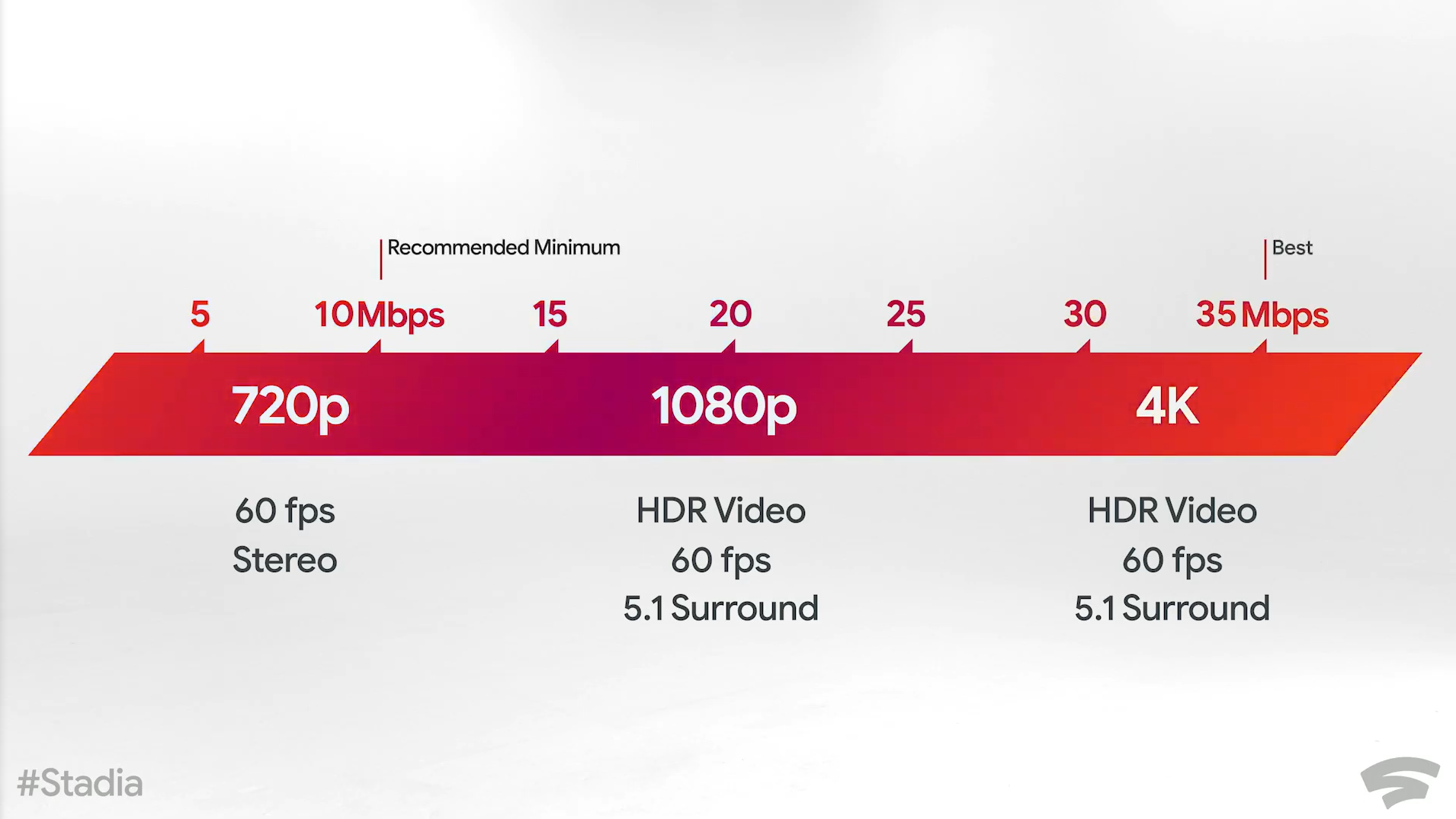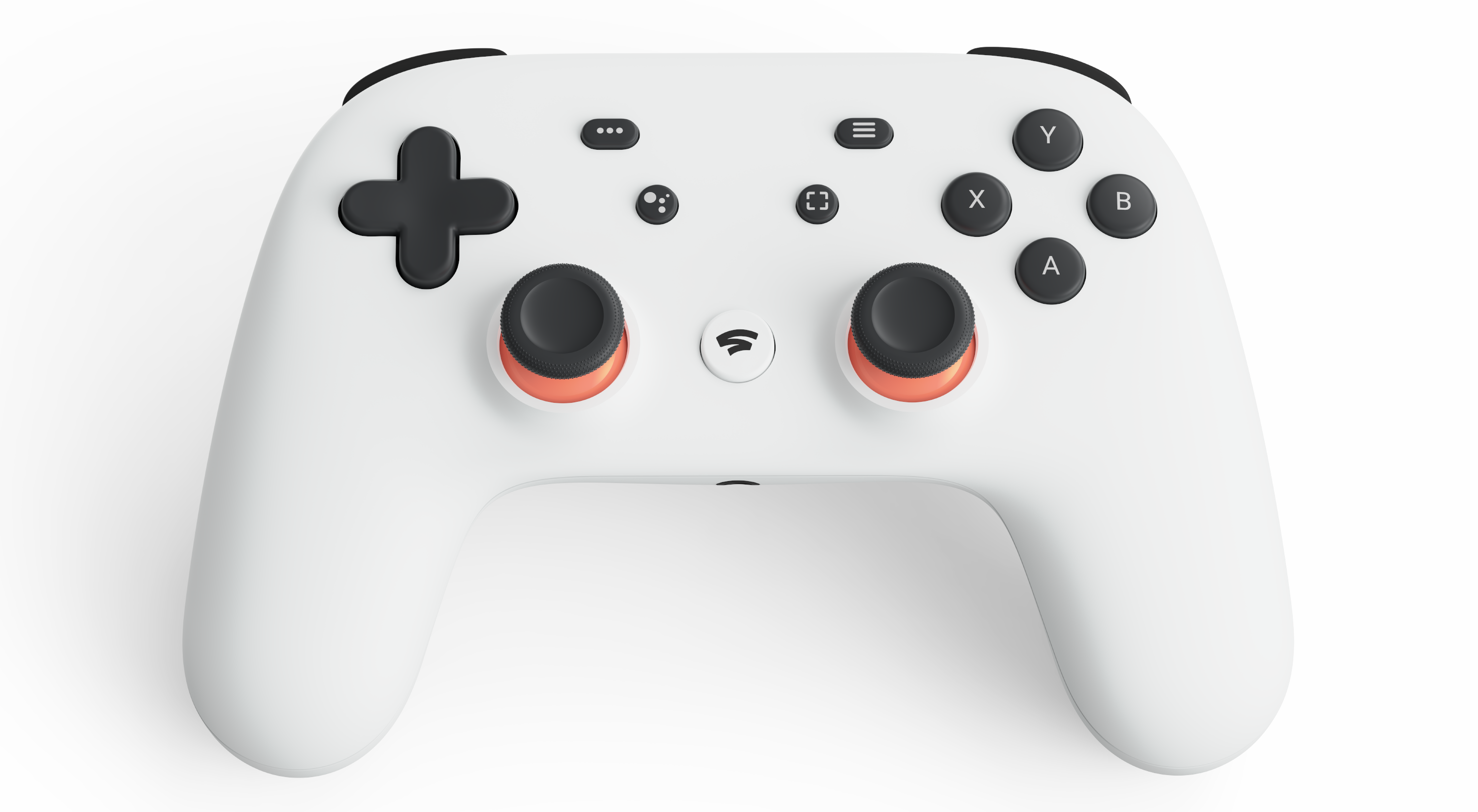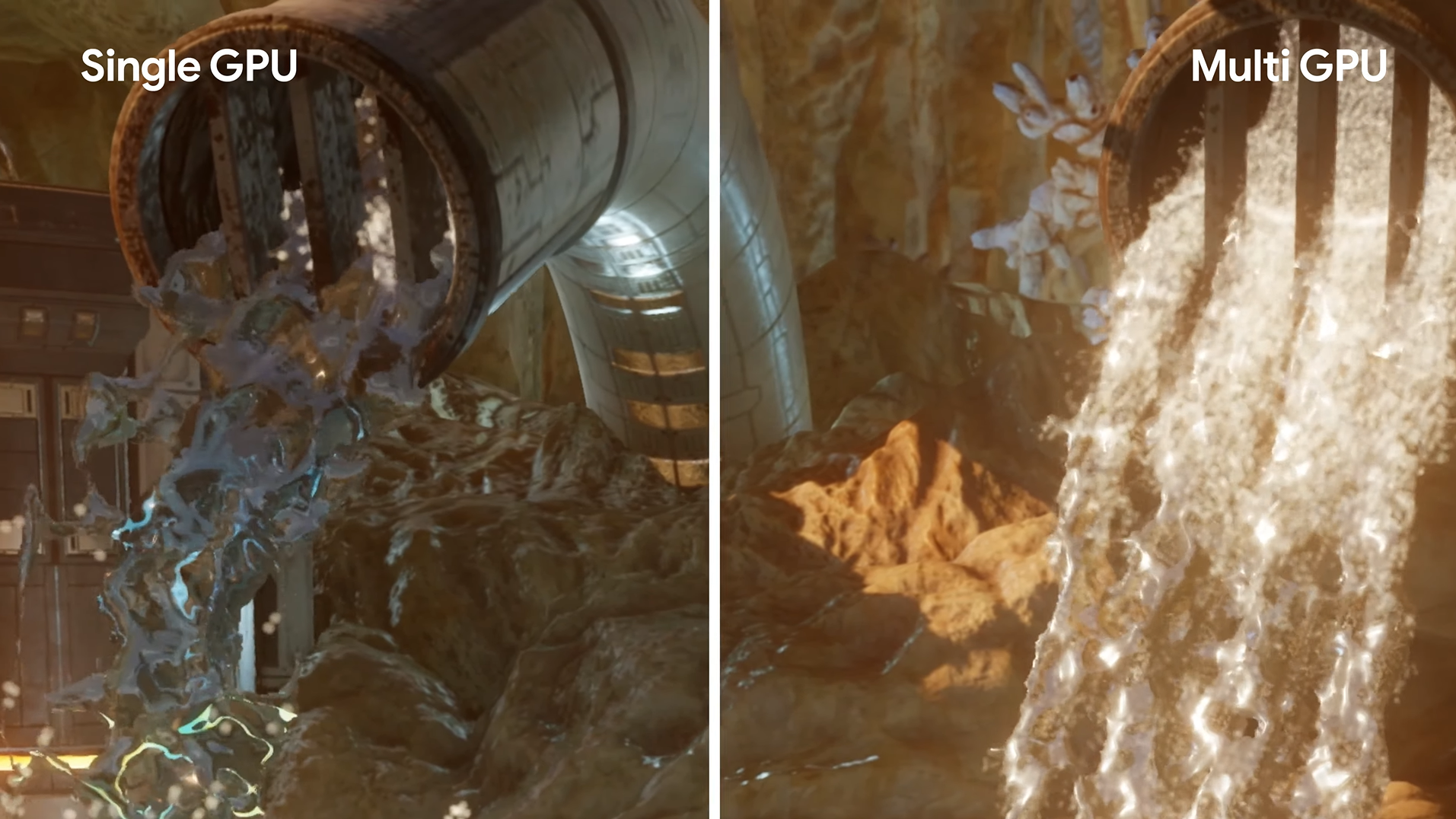Do you really need Google's Stadia Founder's Edition? Who is it for? All your Stadia questions answered
The short answer is 'No' and 'Probably not you'
Change is scary, I know, but now that the dust has started to settle on yesterday's big Google Stadia price and games reveal, I thought I'd take a bit of time to reflect, consolidate and put everything we currently know about Stadia into one, handy guide, answering all your biggest Stadia questions with the best information that's available to me. Here, I'll tell you exactly what you need to know about Google Stadia, whether the Founders Edition is really worth buying, who it's for, what kind of internet you need for it, how much it all costs, and whether it's the end of PC gaming as we know it. Spoilers: it's not.
Let's start with an easy one. What the heck is Google Stadia? Stadia is Google's cloud gaming service. It's not a piece of hardware or a console, or anything like that. It's a streaming service, a bit like Netflix, but for games. So instead of having a high-powered gaming PC or an expensive console sitting underneath your TV, all you need is a device runs Chrome, such as a laptop, tablet or smartphone, and you can play a wide range of today's top games at the touch of a button. You don't have to download anything or update anything - all that gubbins is done in the cloud.
Who is Google Stadia for?
If you're a regular reader of RPS, then Stadia is probably not going to be for you - and that's okay! Personally, I think Stadia is intended for people who already have a keen interest in games, but either don't have the money to upgrade their current gaming PC or console box, or don't want to have a console clogging up their living room anymore), or they don't want the faff of building a new PC. The same sort of people who see the appeal of other cloud services such as Nvidia's GeForce Now or Shadow's Blade cloud PC.
Stadia pitches itself as a service to remove the barriers to high-end gaming. It's built around the idea of convenience, and about making it as easy as possible to play your favourite games on whatever device you like. It's not for people who already have the hardware as well as the cash to keep them up to date. Even if you do have the hardware, though, there are other things that Stadia helps to get rid of. Honestly, the number of times I've sat down to play something only to be told I've got to wait an hour for a 10GB update to download is maddening. Stadia removes that frustration, because all that stuff is taken care of in Google's data servers - and for me, that's one of it's biggest benefits.
But what about Stadia's internet requirements?
This is slightly trickier to unpick. Stadia might sound like a great idea on paper, but in practice a lot of its appeal is going to depend on where you live and what kind of internet packages are available to you. It is, after all, a streaming service. In the UK, for example, I don't see any problem with Stadia taking off. The recommended 35Mbps speed for Stadia's highest quality streams is easily obtainable from most of the major internet service providers here, and the vast majority of broadband deals offer unlimited usage, too.
In the US, however, monthly data caps and generally lower internet speeds make it a much more difficult proposition. As the folks over at PC Gamer worked out, streaming Stadia at that top-end 4K quality will use up 15GB of data per hour. Play for 65 hours, and you'll reach 1TB, which seems to be a common data cap across a lot of US ISPs. That doesn't leave you a lot of wiggle room for doing anything else with your internet that month, and will likely be a big turn off for a lot of people. Elsewhere, however, Stadia should be pretty feasible.
Is latency going to be a problem?
Until I can test Stadia for myself, it's hard to say. So far, the tests that our friends at Digital Foundry have done have been pretty promising, but they were also conducted in a highly controlled environment on a Google-provided connection, so it's difficult to say how that will play out in practice.
Still, from my own experiences of other cloud gaming services, such as GeForce Now and Shadow mentioned above, I don't see latency being much of a problem at all. Sure, it might not deliver quite up to scratch if you're a hardcore fighting or twitchy FPS fan, but for third person action games and titles where reflexes aren't the be all and end all, I've had a cracking good time on Shadow and GeForce Now, and personally I can't really tell the difference. As long as you've got a decent internet connection, you should be pretty fine.
How much does Stadia cost?
Technically, nothing. The only real cost involved in actually running Stadia is buying the individual games, which will almost certainly be priced exactly the same as their counterparts on Steam/Epic/UPlay/GOG/Itch/whatever your favourite store is. I should note that this price estimate is just an assumption at this point, as Google have yet to announce anything official regarding actual Stadia game prices.
You don't even technically need to buy Google's Stadia controller (which costs £59 in the UK and $69 in the US) if you're planning on streaming games to your PC or laptop, as Stadia is compatible with your existing mouse and keyboard, as well as other USB game pad controllers.
The only situation where you will need to buy the Google Stadia controller is if you want to stream games to your TV, tablet or smartphone (and even then you'll only be able to stream to Google's own Pixel 3 and Pixel 3a smartphones at launch, which limits that potential pool of devices even further).
But isn't Stadia a subscription service?
Only if you want to stream games in 4K HDR with 5.1 surround sound. Then you'll need to pay for Stadia Pro, which is a subscription and costs £8.99 per month in the UK and $9.99 per month in the US. If you're content with streaming games at 1920x1080 at 60fps in stereo sound (which Google is calling Stadia Base), however, then it won't cost you a penny - apart from when you buy a game, of course.
The only problem is that this version of the service won't be available until sometime next year in 2020. If you're desperate to try Stadia at launch, you'll need a Pro subscription.
That might sound like a slightly raw deal, but there are other benefits to going Pro as well. While you'll still need to buy individual games like Base users, Pro members will also get a PlayStation Plus-style selection of free games added to their library for as long as they have an active subscription. The first of these free games will be Destiny 2: The Collection. Google have said Pro members will also be able to take advantage of Pro-exclusive discounts on select game purchases, but it's not yet clear how many games this will apply to, or how much the discount will be. In theory, though, it should take the edge off having to fork out full whack for a game while also paying the cost of a subscription.
What's in the Stadia Pro Founder's Edition, then, and is it worth buying?
To help make Google Stadia as easy as possible to setup at launch, Google are currently taking pre-orders for Stadia's Founder's Edition. This includes a three-month Pro subscription for both you and a friend, a limited edition blue Stadia Controller and a Chromecast Ultra, and costs £120 in the UK and $130 in the US.
But you don't really need to spend that much. As I mentioned above, you don't need the controller if you're going to be using Stadia on your PC or laptop, and the Chromecast Ultra is only if you want to stream Stadia to your TV in 4K. A regular Chromecast will be perfectly fine for those after the Base Stadia experience, and given how popular they've been over the years, there's a high probability you may already have one in your home anyway.
So no, I don't think you really need to buy the Stadia Founders Edition, unless of course you simply can't stand the idea of someone bagging your intended Stadia user name before you and therefore must get to it first no matter the cost.
When is Stadia coming out and what countries will it be available in?
We still don’t know exactly when Stadia is going to launch, but it will arrive in the following countries this November: the US, Canada, UK, Ireland, France, Germany, Italy, Spain, the Netherlands, Belgium, Denmark, Sweden, Norway and Finland.
Other countries will have to wait until 2020 – which in all likelihood will probably coincide with the launch of the Stadia Base pricing plan.
What games can I play on Stadia?
So far, Google have announced there will be around 30 games available to play on Stadia at launch, and they are as follows:
- Assassin's Creed Odyssey
- Doom (2016)
- Rage 2
- The Elder Scrolls Online
- Wolfenstein: YoungBlood
- Destiny 2
- Dragonball Xenoverse 2
- Metro Exodus
- GRID
- Get Packed
- Thumper
- Farming Simulator 19
- Power Rangers: Battle for the Grid
- Football Manager 2019
- Samurai Shodown
- Final Fantasy XV
- Tomb Raider Definitive Edition
- Rise of the Tomb Raider
- Shadow of the Tomb Raider
- Borderlands 3
- NBA 2K
- Mortal Kombat 11
- Darksiders Genesis
- Just Dance 2020
- Tom Clancy's Ghost Recon Breakpoint
- Tom Clancy's The Division 2
- Trials Rising
- The Crew 2
- Gylt
Baldur's Gate 3 and Doom Eternal will also arrive on the platform whenever they eventually come out, and Google have said there are games coming from Capcom, EA and Rockstar as well, which we should hopefully hear more about later this summer.
Does Stadia have any exclusive games?
Yes, but before you start with your Epic Store-shaped pitchforks, Stadia exclusives are pretty much like any other platform exclusive. Like your Uncharteds on the PlayStation 4, or your Marios and Zeldas on the Nintendo Switch. And so far, Gylt by Rime studio Tequila Works seems to be the only Stadia exclusive announced so far. Google have given us no indication that they'll be do Epic-style exclusivity deals, where they'll arrive first on Stadia and then later on PC. Instead, Stadia exclusives will just live on Stadia, and nowhere else.
What hardware is Google using to run Stadia?
Google has partnered with AMD to create a custom GPU for Stadia that can deliver 10.7 teraflops of power thanks to its 56 compute units and currently unspecified amount of HBM2 memory. By comparison, a PS4 Pro can deliver 4.2 teraflops of power, while the Xbox One X can produce 6.0 teraflops. Paired with another custom-built 2.7GHz CPU and 16GB of RAM, this is what makes up a single Google Stadia 'instance'.
Most games will only need to use one Stadia instance to run at 4K in HDR, but Google have also said they will be able to use multiple Stadia instances to really turn the graphics quality up to eleven if necessary further down the line. This gives Stadia room to grow as games get more demanding. To see what that means in practice, here's a side-by-side comparison of 3D Mark's Fire Strike demo of a single Stadia instance vs. multiple Stadia instances.
Will I be able to use mods on Stadia?
Unlikely, given how everything's controlled at Google's end, but that's not to say it won't ever happen.
Will Stadia work with my Steam library?
I doubt it, but Google haven't actually ruled it out yet. As Google's Phil Harrison told Digital Foundry in their hands on session, the version of Assassin's Creed Odyssey they used to show off Stadia at GDC was a complete port of the original game. That implies that all Stadia games are going to need to be ported in some way, so they'll almost certainly be a different version than the one you've bought on Steam - in the same way that PS4 games are different to PC games.
That said, Google have also said that Stadia will support cross-platform play, confirming that those looking to play Destiny 2 on Stadia will be able to migrate their existing Guardian and save data over to Stadia without having to start afresh. What we don't know yet, though, is whether you will, in fact, have to buy the game again, or whether there will be some sort of mechanism within Stadia that lets you link up your various accounts to say, 'Hey, I've actually already got this game, please don't make me buy it again'. Hopefully, it will be the latter, but until Google confirm one way or the other, we'll just have to keep all our fingers crossed and hope for the best.
What happens if Google decides to pull the plug on Stadia? What will happen to all my games?
Honestly, I don't know. Google does have a bad track record of dumping services that aren't doing particularly well, and it's highly possible that may happen with Stadia as well at some point down the line. But given how much they've invested in Stadia - making the controllers, setting up the server centres, establishing their own Stadia Games and Entertainment development studio and thus employing lots and lots of people to make games for it - Stadia would have to go catastrophically wrong for them to just pull the plug and dump it off. Plus, just think of the public backlash! Personally, I think Stadia is the most substantial and fully-fleshed out swing at a streaming platform we've seen - with impressive industry clout behind it. I hope it doesn't fail. Fundamentally, I think it's a good thing - I can fully sympathise with someone who wishes to remove themselves from the constant threat of inflated graphics card prices and the drain of having to upgrade their machine every five or so years. At the same time, though, investing in a games library that might potentially vanish when Google gets bored would suck. It's a gamble. As is any new platform. (Why yes, I am very comfortable sitting on this fence, thank you very much.)







